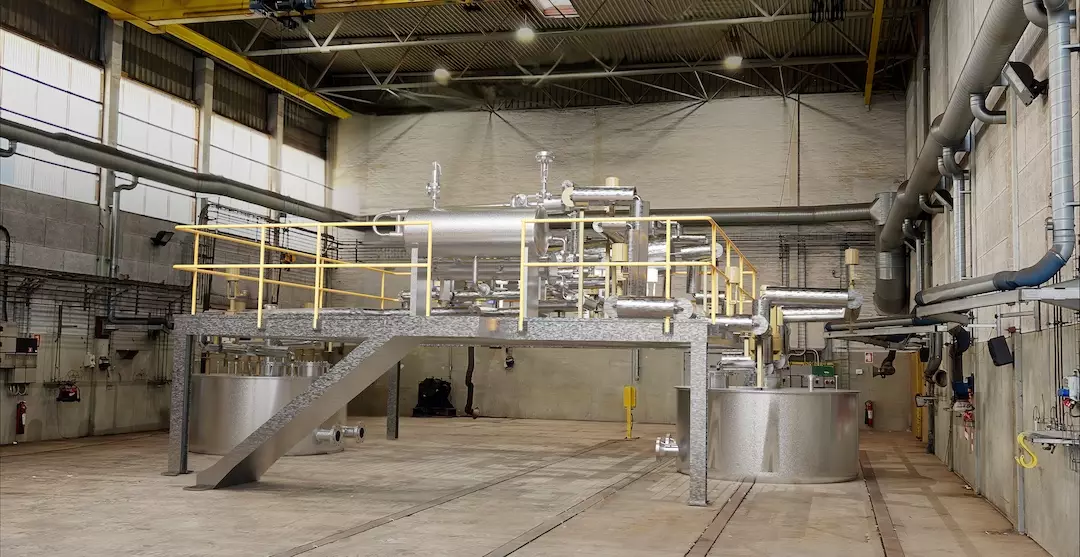In recent years, lithium batteries have established themselves as a reliable energy storage solution, particularly within the consumer electronics sector and electric vehicles. However, their deployment in industrial settings has come under scrutiny due to several inherent limitations. Firstly, the escalating costs associated with lithium battery technology — driven by market demand and raw material expenses — pose significant financial hurdles for industrial users. Furthermore, the often large physical footprint of lithium batteries can be prohibitive in environments where space is at a premium. Ultimately, for certain industrial applications, lithium technology may be considered excessive, raising the question of whether there are more suitable alternatives.
Thermal batteries are emerging as a compelling alternative to traditional lithium solutions, particularly in energy-intensive industries. By storing energy in the form of heat instead of electricity, these systems offer advantages including lower installation costs and a smaller environmental footprint. Denmark’s Hyme Energy exemplifies this innovative approach by employing molten salt as the storage medium for their thermal batteries. This technology enables long-term energy storage that is particularly relevant for industries with significant heat requirements, such as food processing and metal production.
One standout collaboration involves Hyme Energy partnering with Arla, a leading multinational dairy cooperative. This partnership aims to develop a 200 MWh thermal storage system tailored for Arla’s milk powder facility in Holstebro, Denmark. This initiative represents a bold step toward reducing reliance on fossil fuels while significantly cutting CO2 emissions within the dairy sector.
The thermal battery proposed by Hyme Energy showcases a system capable of storing heat at temperatures exceeding 500°C, effectively transforming renewable electricity into usable energy for industrial processes. This innovative design not only targets the substantial energy consumption in Arla’s operations but also aligns with the broader global mission to mitigate climate change through decreasing carbon footprints. By completely displacing fossil fuel energy consumption in its processes, Arla aims to achieve a 100% reduction in CO2 emissions.
Hyme Energy’s CEO, Ask Emil Løvschall-Jensen, emphasizes the strategic fit of their technology with Arla’s steam requirements. The emphasis on producing continuous steam in the critical temperature range of 200°C to 500°C positions Hyme’s thermal storage as a robust solution tailored specifically for sectors with high steam demands.
Despite the promising benefits of thermal batteries, a pivotal question remains: how quickly can this technology be scaled to meet the increasing industrial demand across Europe? Løvschall-Jensen remains optimistic, suggesting that the scalability of their systems hinges on the adaptability and availability of the storage medium, which can be produced without significant limitations. By collaborating with established suppliers and engineering, procurement, and construction (EPC) partners, Hyme aims to fast-track the commercialization of its thermal battery technology.
However, the venture capital landscape presents both opportunities and challenges. While securing funding for software-based innovations tends to be more straightforward, the same cannot be said for hardware-focused technologies like thermal batteries. Hyme has successfully closed initial funding rounds, raising over €25 million ($26 million) to date, paving the way for a Series A round anticipated to bring in an additional €20 million to €30 million ($20.8 million to $31.2 million). With the thermal battery sector projected to attract substantial investment, confidence is growing in its potential.
In a rapidly evolving market, Hyme Energy faces competition from several startups exploring alternative methods of thermal energy storage. Companies such as Electrified Thermal Solutions and Fourth Power are also advancing their technologies, showcasing the diversity of approaches in this field. Gains in venture capital investment reflect a growing recognition of the importance of advancing energy storage technologies that can facilitate the transition toward sustainable industrial practices.
As momentum shifts toward innovative energy storage solutions like thermal batteries, we may find ourselves on the cusp of a revolution in how industries store and utilize energy. The collaboration between Hyme Energy and Arla not only highlights the immense possibilities inherent in thermal energy storage technology but also underscores the broader imperative for industries to adopt sustainable practices in the face of climate change. Such endeavors could lead to a new era of energy efficiency, demonstrating that the future may very well be painted in shades of sustainable innovation.

